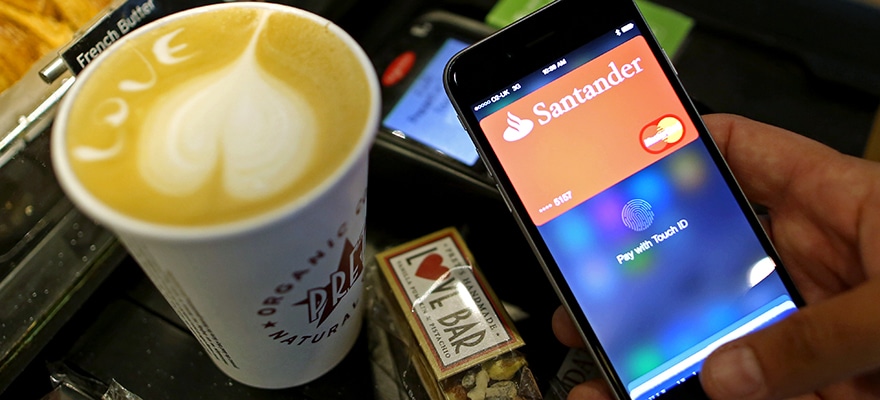Mobile Payments may not have hit wide scale adoption in major markets yet, but two factors are making sure uptake is set to rise. First, nearly every major mobile player is integrating some form of mobile payments as a central feature on devices. This includes hardware where fingerprint authentication is aimed at beefing up security, and software such as Android Pay and Apple Pay that are becoming available on millions of devices.
Secondly, the new generation of point of sale (POS) hardware used by merchant is taking mobile and near field communication (NFC) technology into account. As newer devices replace legacy POS systems, this bodes well for mobile payments users who will see an increasing array of merchants supporting the technology.
Apple Pay and its fingerprint technology have shown to be vulnerable to thieves
But, like any new payment type, also comes new forms of fraud. Already, Apple Pay and its fingerprint technology have shown to be vulnerable as thieves have been able to upload stolen credit cards and use them on their Apple Pay accounts on their phones. As such, while fingerprint verification diminishes the chances of stolen phones being used by thieves, stolen credit cards remain a problem.
As a deterrent for stolen credit cards, the most common form of deterrence are fraud systems in place at banks and credit card companies which analyze user transactions types and their location. When a suspicious payment occurs, credit card users can get called to validate that the transaction was theirs. The downside of this system is that transactions are checked after the fact. In addition, human interaction is typically used to follow up with credit card customer.
A potential solution to fight both mobile credit card theft and reduce fraudulent transactions from taking place are software systems that enable payments directly within the phone. With these solutions, before transactions are sent from a merchant to credit card company, they first must pass through embedded payment verification software that is included in the phone.
Within this field there are a number of firms creating such mobile integrated solutions. Among them include the largest players such as Apple and Google that are creating new security features to be added within their existing mobile payment wallets. Competing against the heavy weights is Israeli Startup , OffLA.
A payment wallet that knows its owner could detect and kill a transaction before it ever gets sent to the credit card company
As their name hints at, OffLA’s technology is based on creating payment security using offline authentication. Speaking with CEO and Co-Founder Dr. Nachshon Margaliot, he explained to Finance Magnates, that his firm’s goal was to create a solution that could understand user payment habits directly from the phone, without the need of verifying transactions with a central server. According to Margaliot, such as model would be more effective in fighting fraud, as a payment wallet that knew its owner could detect and kill a transaction before it ever gets placed to be sent to the credit card company.
Being targeted towards financial firms such as credit card firms and banks, OffLA is offered as a SDK that can be integrated within their mobile payment wallets through a joint venture agreement. OffLA works by analyzing user payment habits which are handled by a central system. The results of that analysis is then synced with an individual’s mobile wallet. Upon a payment being made, the transaction type and location is then verified against offline user data on the mobile wallet.
In cases where a red-flag is raised, users are prompted with multiple choice security questions. According to Margaliot, OffLA elected to use multiple choice questions, as they are easier for mobile users to answer, as typing answers or entering a PIN number increases friction of transactions. The choice of security questions is partAs OffLA’s overall goal to combine both security and ease of use for mobile payment wallets.
Fintech Spotlight is a new column on Finance Magnates devoted to reviewing innovative financial technology companies and sector trends.













